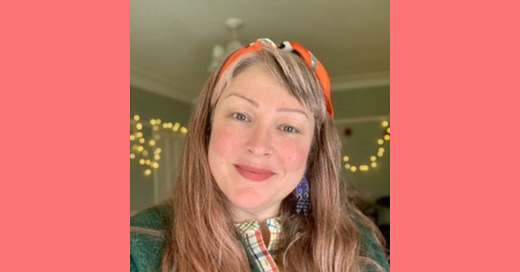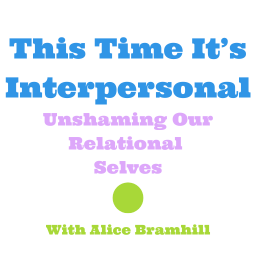'Friendships were like this mysterious code he couldn't crack'
Alice Bramhill writes about her neurodivergent family’s journey from mainstream school to Steiner and onto homeschooling, and unschooling.
Looking back, the signs were there with our eldest son from early on, though I couldn't quite put my finger on it.
While other parents seemed to have this parenting thing all figured out, I was getting side-eyes about how sensitive my boy was, or well-meaning (but honestly unhelpful) advice to sleep train him when sleep just wasn't happening for us.
The baby groups? Yeah, we never made it to the end - he'd get totally overwhelmed.
Then school. That's when things got really rough. Friendships were like this mysterious code he couldn't crack. He was scared of some of the other children. His nursery teacher said he didn’t want to ’play rough’ like the other boys, he was liked by the other girls for his gentleness and imaginative play.
But moving out of nursery to full days and more of that ‘formal’ learning in F2. His anxiety before school ramped up until mornings became this awful battle that still makes my heart hurt eight years later. The panic would start building before we even got dressed. Getting him through those school doors got harder and harder each day.
Our youngest seemed to be doing okay in preschool for those 2.5 hours daily, but friendship-wise, it was similar - he’d fixate on kids he wanted as friends, while their parents' body language screamed ‘not happening’ maybe because he didn’t fit either. He was kind, quirky, face value kind of child, not cool, sporty or wanting to wear the latest clothes or play football.
I think because our eldest was so visibly struggling with everything - clothes bothering him, smells, people, noise - maybe we didn’t fully clock what was happening with our little one, that is also hard looking back, but I have a lot of self compassion for my early parenting years.
After year one, desperate for something better, we tried our local Steiner School. I had my doubts, but hey, it seemed more relaxed - maybe this would work!
Total disaster. My eldest didn't want to be there at all. He'd literally run after me at drop-off, and the teacher's brilliant advice? ‘Just go and leave him’. Everything in me screamed WRONG. He got bullied, and their laid-back approach to it made mainstream school suddenly look amazing by comparison.
After two terms, we pulled the plug. My son was completely burned out. The school didn't listen or care. I was certain he was autistic, but got the classic "no, surely not" response, followed by “the worst thing you can do now, Mrs. Bramhill, is take him out of school" and "he needs to stay to learn how to make friends."
But then we discovered unschooling.
After trying the whole "school-at-home" thing (which my super sensitive, demand-avoidant kiddos spotted from a mile away and wanted nothing to do with) I was introduced to the concept of self directed education, auto-didatic learning. We have space to accommodate their very different needs.
It isn’t always easy, especially when one wants to go out and the other doesn’t. When an activity suits one child and not the other, and you can’t seem to make anyone happy. But. We do it. And the biggest part of this whole journey has been understanding the dynamics of consent, of connection, of community within our own little eco-system. Connection over everything. Always.
The children are amazing at discovering what actually interests them, and we back them up however we can.
Their dad and I both work part-time, doing our self-employed work to keep us afloat. Our income took a hit and my career definitely went sideways, or so I thought at the time, I wouldn’t say that now, but seeing our children finally thrive in their own neurodivergent ways is priceless.
We're a completely neurodivergent household - everyone doing their own thing but coming together naturally when we need connection. It has this beautiful rhythm to it. I still have to fight that nagging voice when certain ages hit - that pressure to be doing life according to the school system timeline. I remind myself learning happens all the time, everywhere, even when it doesn't look "educational."
The biggest part of this journey has been facing the reality of how dominant culture impacts on our beliefs about what being a parent and what a ‘good’ parent ‘should’ look like. And what children really need, and how few opportunities children have to make choices and decisions for themselves. Also what does success look like, letting go of what these pre-formed ideas might look like and actually celebrating other markers of success.
I would have NEVER thought I'd be home educating my kids. Six years on, it definitely wasn't by choice! But here we are, making the absolute most of it. When your children’s nervous systems aren't constantly in fight-or-flight from being in the wrong environment, it's amazing how much everyone in the family can breathe and grow. My children are 13 and 11 now and we are always responding to their changing needs.
Sometimes the best path isn't the one everyone else is taking - it's the one where your children can finally be themselves without apology. And honestly? That's been the biggest gift for all of us.
Would you consider supporting Raising Neurodivergence? If more readers are able to contribute a small monthly/yearly amount, I can write and edit more articles, and spend time interviewing neurodivergent adults. I’d also love to be able to pay neurodivergent writers for their contributions. It’s £3.50/month or £35/year. You can subscribe here.







